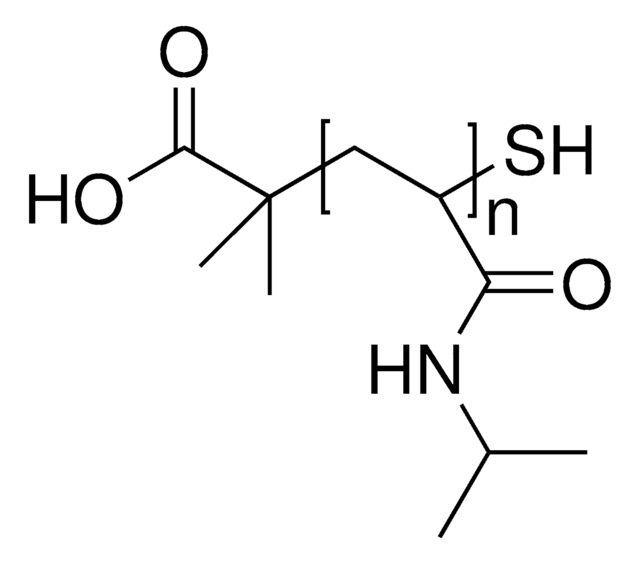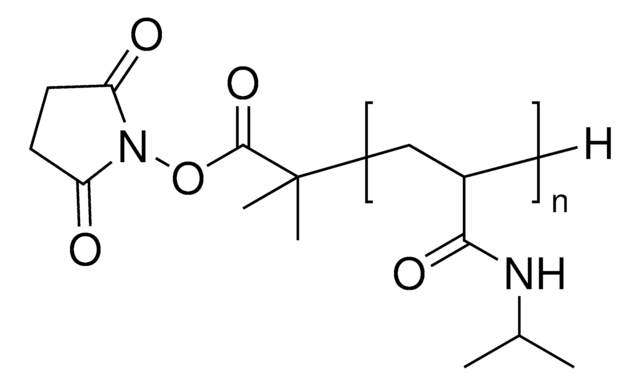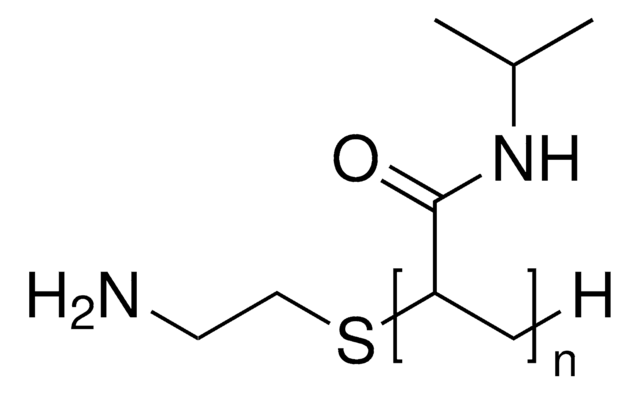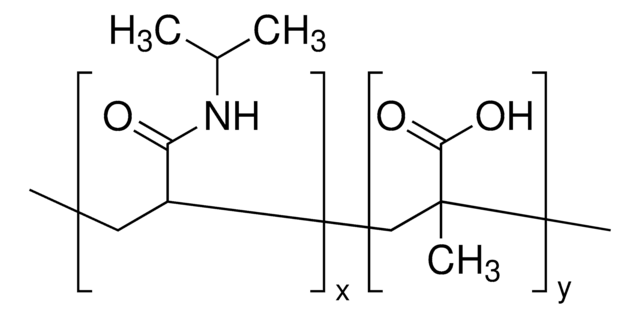762881
Poly(N-isopropylacrylamide-co-butylacrylate)
butylacrylate 12 mol %, average Mn 30,000
Synonym(s):
NIPAM, polyNIPAM, polyNIPAM-BA
Sign Into View Organizational & Contract Pricing
All Photos(1)
About This Item
Linear Formula:
(C6H11NO)m(C7H12O2)n
UNSPSC Code:
12162002
NACRES:
NA.23
Recommended Products
form
solid
feed ratio
NIPAM:BA 8:1
mol wt
average Mn 30,000
composition
butylacrylate, 12 mol %
transition temp
LCST 14-16 °C
PDI
1.51
Looking for similar products? Visit Product Comparison Guide
Related Categories
General description
Random copolymer of N-isopropylacrylamide with 12 mole % butylacrylate. This copolymer shows LCST at 15 C (lower temperature than PolyNIPAM).
Application
Thermosensitive polymer; can be used to form a hydrogel. Aqueous polymer solution undergoes a phase transition from a soluble to an insoluble state when the temperature is raised to ca. 15 °C.
Storage Class Code
11 - Combustible Solids
WGK
WGK 3
Flash Point(F)
Not applicable
Flash Point(C)
Not applicable
Certificates of Analysis (COA)
Search for Certificates of Analysis (COA) by entering the products Lot/Batch Number. Lot and Batch Numbers can be found on a product’s label following the words ‘Lot’ or ‘Batch’.
Already Own This Product?
Find documentation for the products that you have recently purchased in the Document Library.
A Gutowska et al.
Journal of biomedical materials research, 29(7), 811-821 (1995-07-01)
Biomer/poly(N-isopropylacrylamide)/[poly(NiPAAm)] thermosensitive polymer blends were prepared and their application as heparin-releasing polymer coatings for the prevention of surface-induced thrombosis was examined. The advantage of using poly (NiPAAm)-based coatings as heparin-releasing polymers is based on the unique temperature-dependent swelling of these
G Chen et al.
Nature, 373(6509), 49-52 (1995-01-05)
There are many potential applications of 'intelligent' aqueous polymer systems in medicine, biotechnology, industry and in environmental problems. Many of these polymer systems undergo reversible phase transitions--for example, abrupt changes in volume--in response to external stimuli such as temperature, pH
Our team of scientists has experience in all areas of research including Life Science, Material Science, Chemical Synthesis, Chromatography, Analytical and many others.
Contact Technical Service







